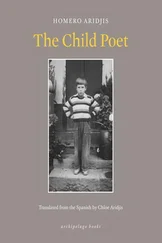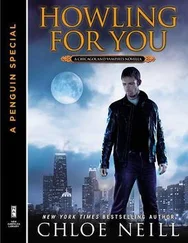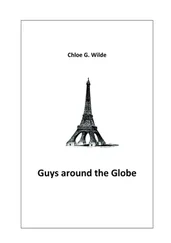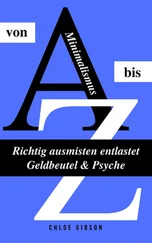The first was from Medellin, a city teeming with poets apparently, and from its multitude one poet had become Daniel’s friend. In his letter the man described a small scientific press he’d launched with a few university professors and also two new poems, and how inspiration came to him most mornings between 7.23 and 10.56.
Towards the end of the letter, the Colombian mentioned his brother, who’d recently moved to London with a woman from Uttar Pradesh. They had just opened a restaurant serving southern Indian cuisine. Would Daniel be so kind, the poet asked, to drop by for dinner one evening? If he mentioned his name he would surely get a discount. The instructions were vague — location: the second floor of a building above a porn shop in an alleyway in Soho — but, confident we would find it and always ready for a local adventure, we made a plan to go the following week.
Daniel reached for the next letter. My thoughts began to travel.
To me, poetry would remain hazy territory, and poets individuals who saw life through either microscopes or telescopes, people for whom there were a thousand ailments, a thousand medicine cabinets. They said they liked to climb but in truth they preferred the descent. When I met Daniel he had one entire collection, endlessly polished and ready for the world, yet little desire to publish. Citing his favourite Czech author, he pointed out that neither Christ nor Socrates had ever written a line yet their teachings were still alive, while there were many writers who were read less and less in inverse proportion to the number of books they published. History, not critics and booksellers, would decide.
At the insistence of a friend Daniel had sent his first collection, Lamentations in Front of a Closed Shop Window , to a press in Manchester. A young editor had liked it, her colleague, also a young editor, had liked it, but it came to a sobering halt in the hands of the senior editor, who complained about what he called an abundance of Latinate words. There were several back-and-forths. After the senior editor suggested Daniel turn to a more Anglo-Saxon vocabulary and get in touch when he had a new collection, Daniel swore that from then on he would write only for himself and his friends.
Apart from his notebooks he had, over the years, committed lines to napkins, pamphlets, museum maps, tickets for different transportation systems, flyers for clubs, restaurant menus, place mats, gum and mint wrappers, shop receipts, margins of newspapers, and whatever else contained a blank space, including the fronts and backs of his hands, the safest place of all apart from the time he forgot and washed his hands and lost a poem to the drain.
Perhaps owing to my ignorance, or to caution or discretion on his side, Daniel showed me mostly fragments. This was fine with me; I had trouble concentrating when something was read out loud so the shorter the piece, the less chance of drifting. On the back of a cinema ticket: Mortal coughing in the antechamber . On the pamphlet to the Imperial War Museum: Life in limbo, a stalling of haikus . On a napkin from a café in Soho: Canary in cage/Biography in microscript . On a torn piece of paper: Verbs locked away/The snow leopard’s winter hoard . On another scrap: Lame dragon December , followed by two smudged lines.
Some poems had been inspired by things he’d overheard at the museum, words spoken by visitors walking past or standing at a painting nearby, and in some cases, or actually most, they were direct transcriptions of phrases misheard, for that’s how a new idea would pop into his head, he said, when he was there at his post, half present half absent, and phrases were being uttered around him. He could interpret them as he chose, and in many cases he jumbled them up, changed a word, replaced a letter or subtracted a line. He’d only started this methodology at Tate Britain, snatching things from the air and giving them shape with his pen. At the National Gallery there were too many visitors and too much noise and activity, so fewer chances to eavesdrop. I would often hear snippets of conversation as people entered and exited the rooms, like the details from paintings they sold on postcards in the shop, but my hearings and mishearings rarely led to anything new.
Daniel never asked for my opinion and I never offered one. Years ago I’d nearly killed our friendship by suggesting I didn’t like something and had kept quiet ever since. It made little difference how much I listened or let my thoughts stray. Along with the nautilus, I was simply another ear, and sometimes all he needed was to get the poem off the page and into the air in order to then send it out.
The afterlife of what he wrote depended, I knew, almost entirely on the reactions he received through the post. When a poet from Buenos Aires expressed in the most diplomatic terms possible his concern over Daniel’s new collection The Singed Fur of the Circus Tiger , suggesting it was maudlin at times, Daniel immediately shelved it. He omitted ‘at times’ from his memory and pulled the word ‘maudlin’ into relief. Yet if he’d asked me I would’ve said, Don’t shelve it, send it out. If he’d asked me I would have told him that I loved the poem about the old elephant that escaped a travelling circus, one of the few he’d read me complete, how after a life in chains and goaded by rods, four-ton Dora was startled by a cat and broke free and ran out into the highway where she collided with a bus. The driver died, Dora died, as well as six passengers, their wounds described in chilly detail. Daniel ended the poem with a description of the final spotlights to shine on the lifeless pachyderm, those of passing cars. But the poet from Buenos Aires wasn’t moved, not by Dora or any of the other unlucky animals featured in the collection, and maudlin was too weighty a verdict.
It was nearing eight by the time Daniel put away his various papers and remembered I was hungry. By then I was shifting in my seat every few minutes and looking out of the inky squares of the windows. The pot of tea and the bottle of wine had long sat empty. After consulting a few takeaway menus we ordered three Thai dishes, clutching at our chopsticks in the half-lit room, the open container of rice sitting on someone’s Collected Works, as Daniel asked me about my week and I about his. That was how many evenings, after the long show and tell, drew to a close.
My Sunday, I couldn’t help feeling, had ended up being a long immersion in other people’s pursuits and desires. I wanted to steer my thoughts elsewhere, away from bats, poems and corsets, so on the bus home I reached back in time to a correspondence of my own, the only one of my life, in fact, begun in my late adolescence and lasting into my early twenties.
Hatched not from a hobby or a mutual friend but from a pen-pal scheme I’d read about, with inmates at prisons in the UK. I filled out a form and sent it in. Based on my answers, a match was made. David Murphy was his name, an inmate at Wormwood Scrubs, a Category B prison in West London. I wrote him my first letter. Three days later, I received a reply. I no longer recall the contents, only my crackling pulse as I extracted the paper from the envelope. I sent him a second letter. A further reply. Each letter of his was a bit longer, more detailed. Soon we were writing every week.
Most of his letters described life in prison: the soul-crushing routines, glimpses of the sky through three glass panes and wire mesh, drab variations in the food, highly volatile cellmates. Days measured out in steps — five from bed to door, three from bed to window, two from window to sink. A constant twilight. Pet spiders and mice. The fitful buzz of a dying fly. Occasionally he’d half joke about his situation or draw pictures in the margins. In his previous life he had worked as a welder.
Читать дальше












